

The 2020 Ibrahim Index of African Governance (IIAG) assesses environmental governance in 54 African countries in the Sustainable Environment sub-category, across five indicators: Promotion of Environmental Sustainability, Enforcement of Environmental Policies, Air Quality, Sustainable Management of Land & Forests and Land & Water Biodiversity.
The IIAG is not all encompassing in terms of environmental issues. This in part due to a restricted data landscape, but it also factors in the transnational nature of many environmental challenges such as climate change that requires contextualisation at the global level for proper analysis. The IIAG focuses instead on governance efforts and the management of natural resources within the country.
Sustainable Environment has improved year on year until 2018
Sustainable Environment is the third best scoring sub-category in 2019 (55.4). It is also the third most improved sub-category in the IIAG over the decade (+3.8) and the second most improved in the latest five years (+1.7), having marginally increased its pace of progress in the latter period.
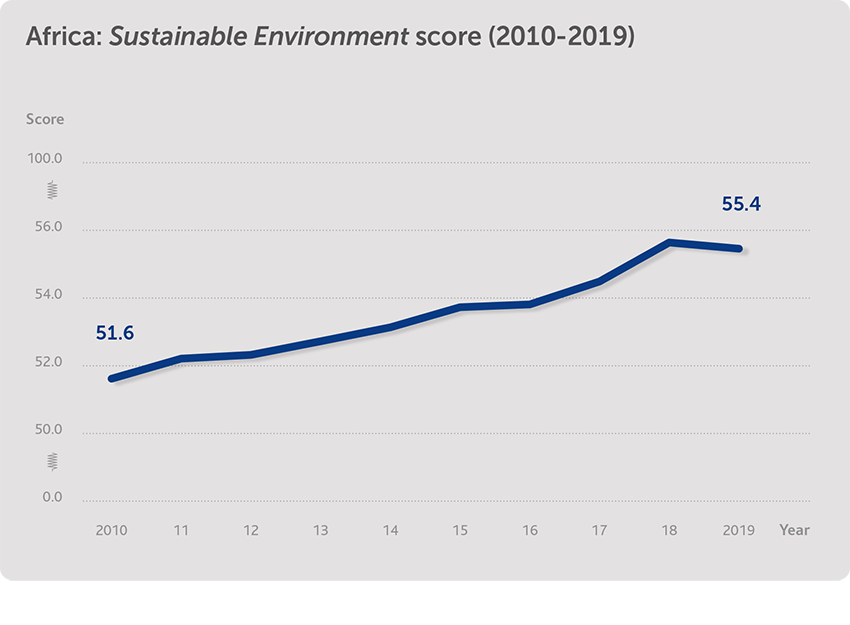
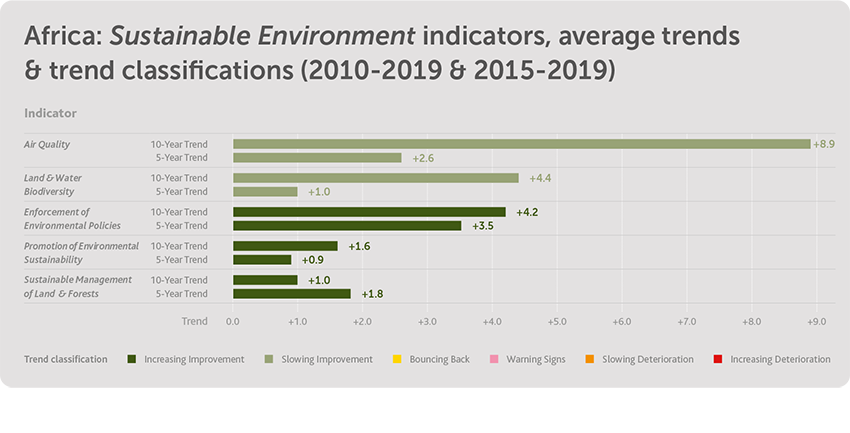
Improvements across the board, but biggest strides in air quality
All underlying indicators of the sub-category have improved both over the ten-year and five-year period. Sustainable Environment is the only sub-category of the 16 in the IIAG to achieve this. The continent has on average stepped up in promoting environmental sustainability through policies and regulations and has also become more rigorous in enforcing such policies, having accelerated efforts over the last five years.
On average over the last ten years, the continent has seen the most progress in improving air quality, including a reduction in household air pollution. The annual average trend of improvement has slowed since 2015. Both terrestrial biomes and marine areas are better protected than ten years ago, though the rate of progress has slowed for the former.
The least progress has been made in the sustainable management of land and forests. On average, countries have made progress in the sustainability and diversification of agriculture. However, primary forest loss has worsened over the last ten years.
All countries but seven have improved between 2010 and 2019
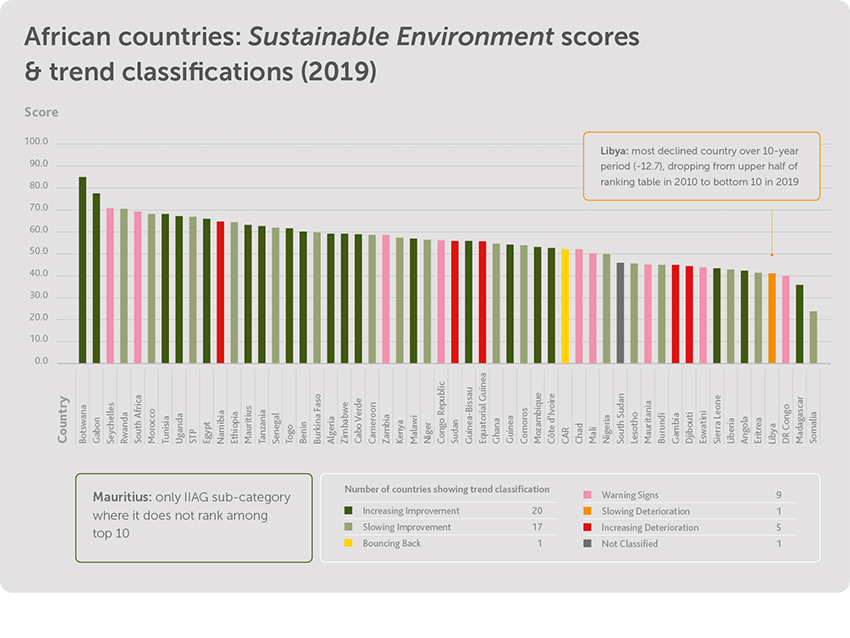
Between 2010 and 2019, 46 countries have improved their score in Sustainable Environment, the third most of any IIAG sub-category, while a further 20 countries have seen their rate of improvement accelerate since 2015. Only seven countries have seen their score decline between 2010 and 2019, however, this number has more than doubled in the second half of the decade with 16 countries having followed a negative trajectory between 2015 and 2019.
In 2019, Botswana (84.9) is the top scorer in Sustainable Environment, a position it has maintained over the whole decade. Gabon is the most improved country, with an increase of +18.5 between 2010 and 2019, rising from 12th on the ranking table in 2010 to 2nd in 2019.
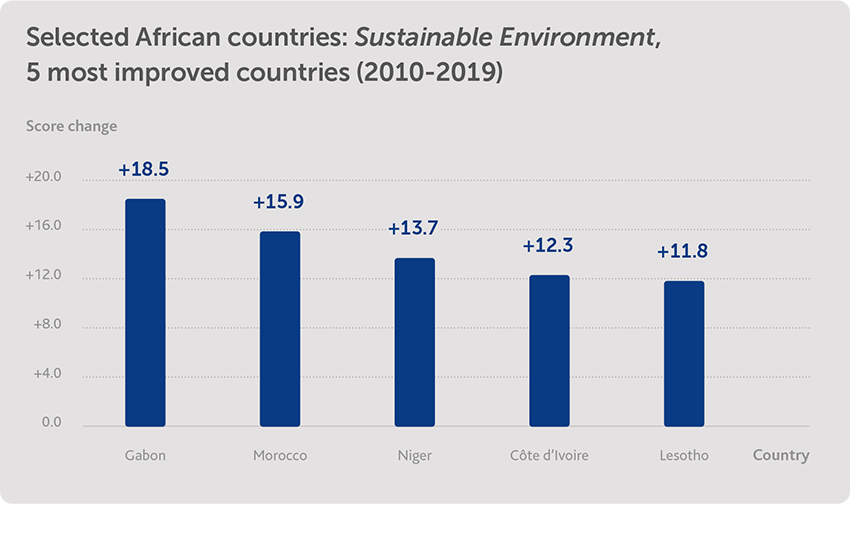
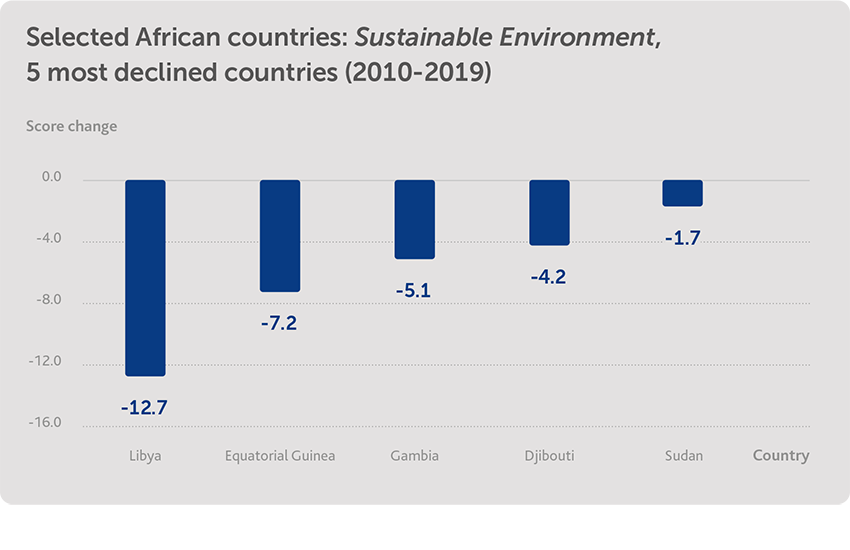
Research Spotlight series
A new format exploring IIAG data and key facts and figures on African governance more in-depth.